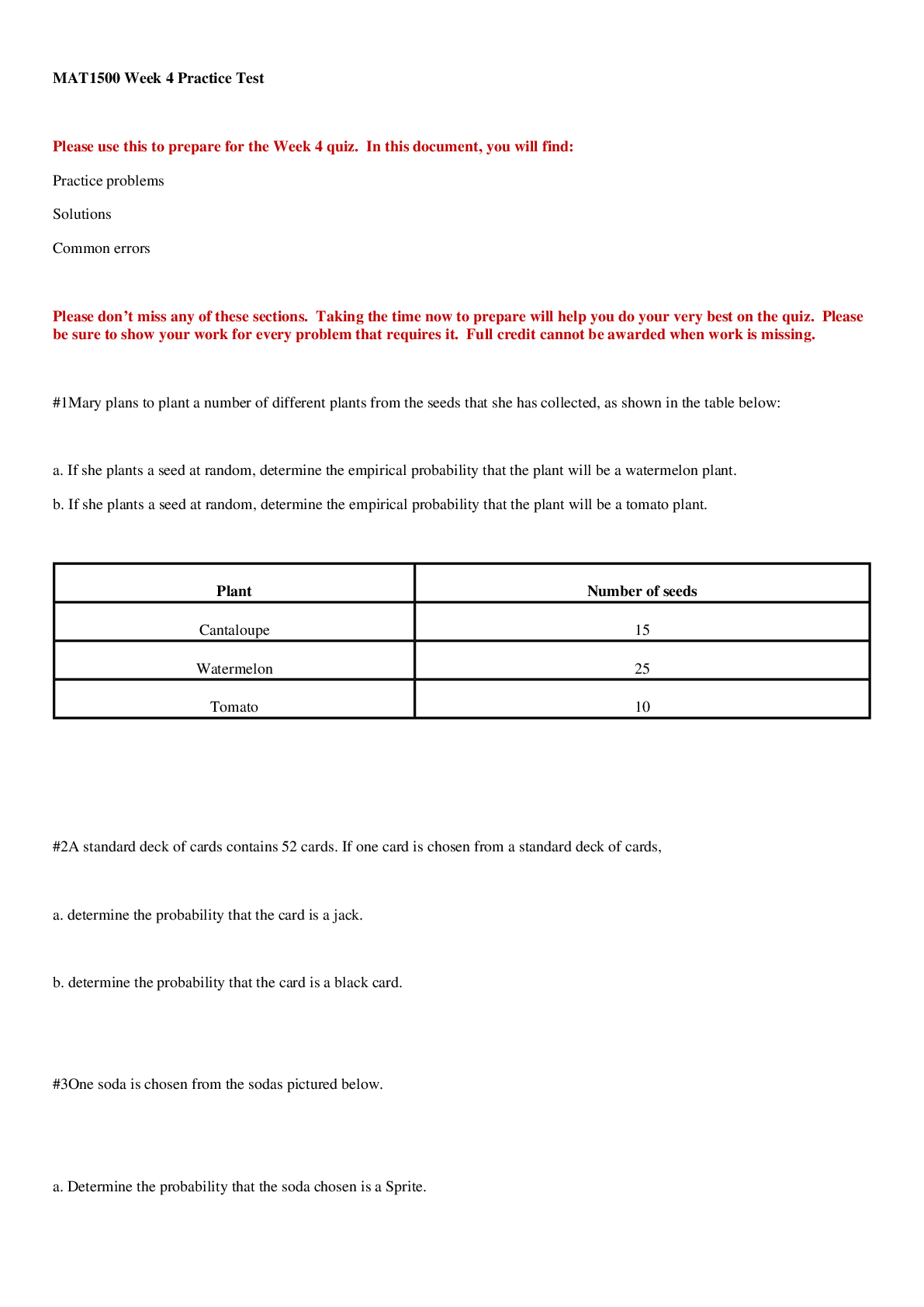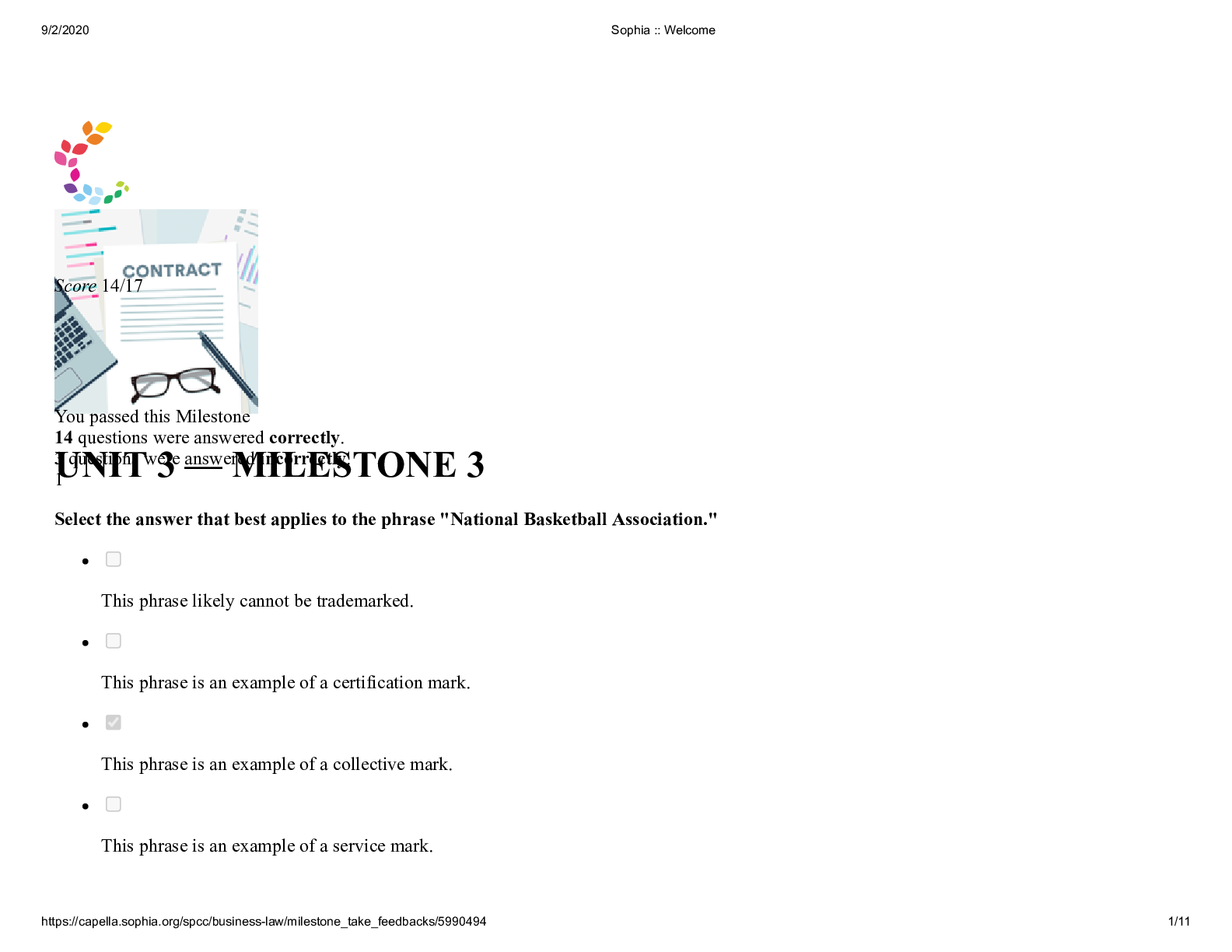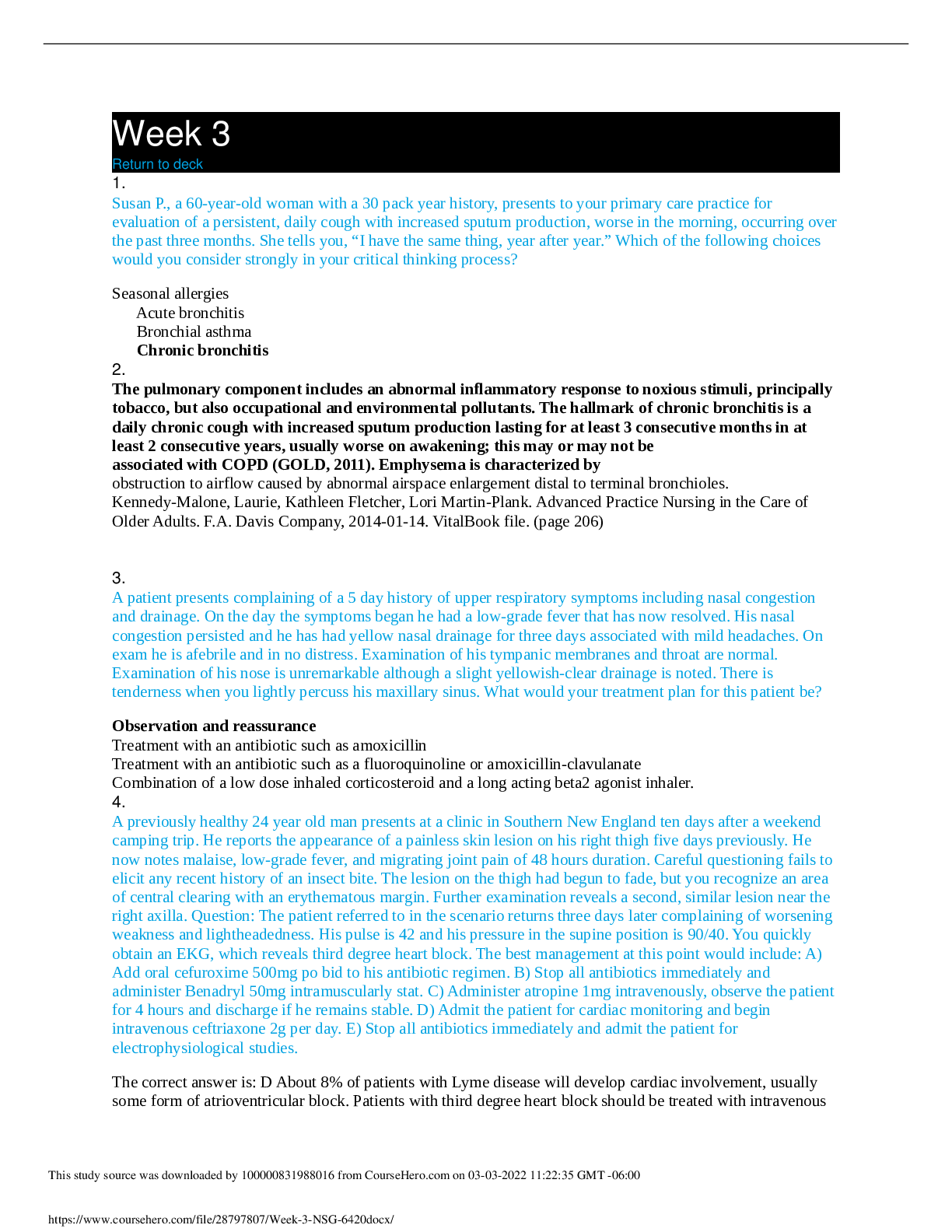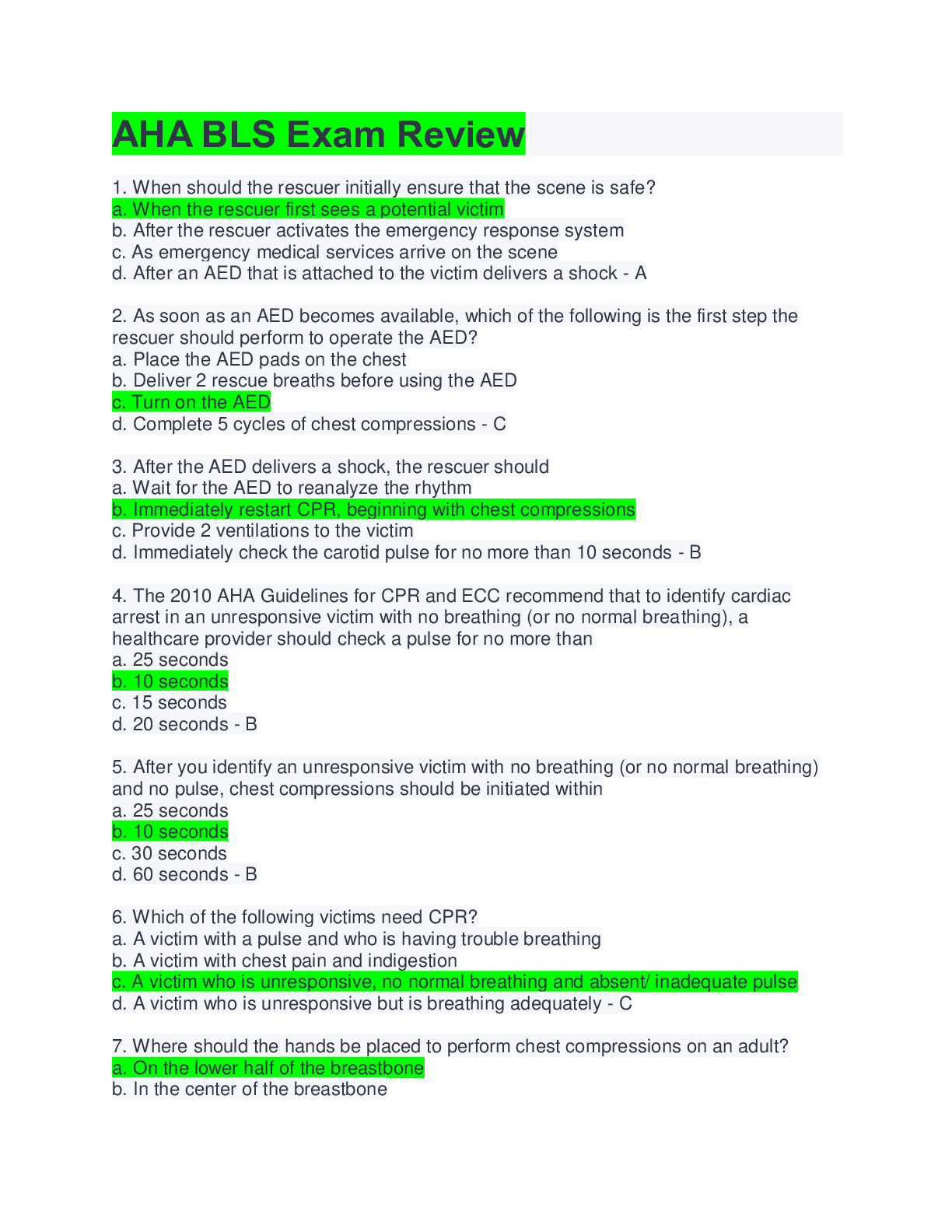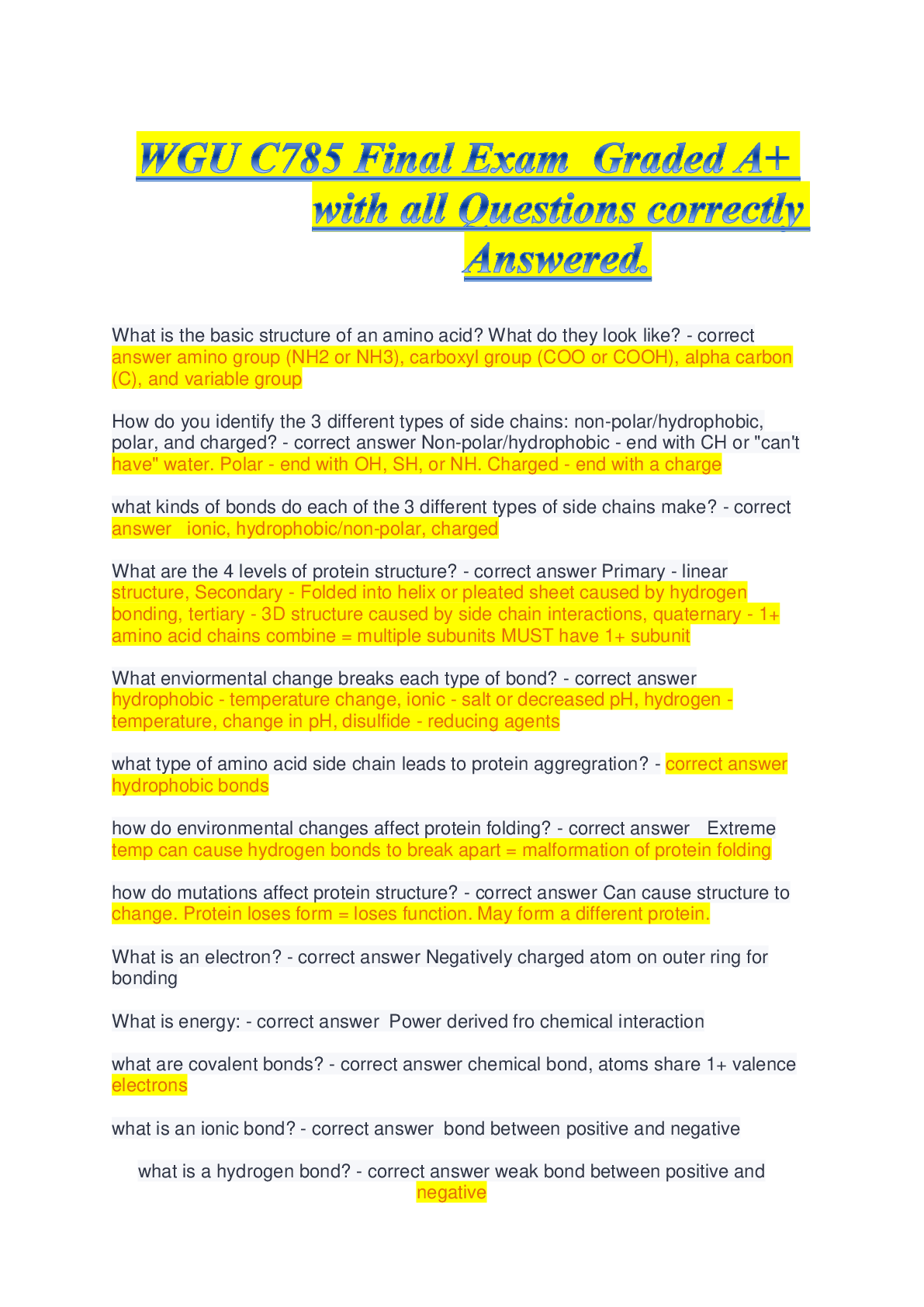Social Sciences > EXAM > PS/SO 499 Critical Thinking- Dr. Durm Questions and Answers with Complete Solution (All)
PS/SO 499 Critical Thinking- Dr. Durm Questions and Answers with Complete Solution
Document Content and Description Below
The Fallibility Principle - ANSWER A rational person should be willing to accept the fact that he or she is fallible which means that one must acknowledge that one's own position on an issue may not b... e the most defensible one. The Truth-Seeking Principle - ANSWER A rational person should be committed to the task of earnestly searching for the truth or at least the most defensible position on the issue at stake The Clarity Principle - ANSWER The formulations of all one's positions, arguments, and attacks should be free of any kind of linguistic confusion and clearly separated from other positions and issues. The Burden-of-Proof Principle - ANSWER The burden of proof for any position usually rests on the person who sets forth the position. If and when an opponent asks, one should provide an argument for that position. The Principle of Charity - ANSWER If one is reformulating another person's argument, it should be carefully expressed in the strongest possible version that is consistent with what is believed to be the original intention of the arguer. The Structural Principle - ANSWER This first criterion of a good argument requires that one who argues for or against a position should use an argument that meets the fundamental structural requirements of a well-formed argument, which is a conclusion with at least one reason in support of it; and if it is a normative argument, it must have a normative premise. The Relevance Principle - ANSWER This second criterion of a good argument requires that one who presents an argument for or against a position should set forth only reasons whose truth provides some evidence for the truth of the conclusion. The Acceptability Principle - ANSWER This third criterion of a good argument requires that one who presents an argument for or against a position should provide reasons that are likely to be accepted by a mature, rational person and that meet standard criteria of acceptability. The Sufficiency Principle - ANSWER The fourth criterion of a good argument requires that one who presents an argument for or against the position should attempt to provide relevant and acceptable reasons of the right kind, that together are sufficient in number and strength to justify the acceptance of the conclusion. The Rebuttal Principle - ANSWER This fifth criterion of a good argument requires that one who presents an argument for or against a position should include in the argument an effective rebuttal to all anticipated serious criticisms of the argument that may be brought against it or against the position it supports. The Suspension-of Judgment Principle - ANSWER If no position is defended by a good argument, or if two or more positions seem to be defended with equal strength, one should, in most cases, suspend judgment about the issue. The Resolution Principle - ANSWER An issue should be considered resolved if the argument for one of the alternative positions is a structurally sound one that uses relevant and acceptable reasons that together provide sufficient grounds to justify the conclusion and that also includes an effective rebuttal to all serious criticisms of the argument and/or the position it supports. Necessary Condition - ANSWER (Only if) a condition that must exist for an effect to occur. Sufficient Condition - ANSWER (If) a condition that will always produce the effect Designating Other Factors as Causes - ANSWER 1. Triggering Factor 2. Unusual Factor 3. Controllable Factor Liar Paradox - ANSWER 1. This Sentence is False 2. "One of themselves, even a prophet of their own, said, 'The Cretians are always liars, evil beasts, slow bellies'. This witness is true." Titus 1:12-13 Characteristics of a Critical Thinker: Developing the Correct Attitudes and Dispositions - ANSWER A. Intellectual Curiosity B. Objectivity C. Open-Mindedness D. Flexibility E. Intellectual Skepticism F. Intellectual Honesty G. Being Systematic H. Persistence I. Decisiveness J. Respect for Others Viewpoints Valuing Truth above Self-Interest - ANSWER Critical thinkers hold themselves and those they agree with to the same intellectual standards to which they hold their opponents. Critical thinkers recognize that, even when it appears otherwise, the "truth" is almost always in their self-interest. Accepting Change - ANSWER Critical thinkers remain open to the need for adjustment and adaptation throughout the life cycle. They're willing to use their critical thinking skills to examine even their most deeply held values and beliefs, and to modify them when faced with compelling evidence. [Show More]
Last updated: 2 years ago
Preview 1 out of 5 pages

Buy this document to get the full access instantly
Instant Download Access after purchase
Buy NowInstant download
We Accept:

Reviews( 0 )
$7.00
Can't find what you want? Try our AI powered Search
Document information
Connected school, study & course
About the document
Uploaded On
Oct 15, 2022
Number of pages
5
Written in
Additional information
This document has been written for:
Uploaded
Oct 15, 2022
Downloads
0
Views
55














